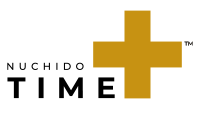Nuchido CEO and Chief Scientist Dr Nichola Conlon recently published a review article in the Journal of Biochemical Pharmacology entitled ‘A systems-approach to NAD+ restoration’. The peer-reviewed article discusses why NAD+ is critical to healthy aging and the best approach to boost NAD+ levels.
Read a summary of the paper below or click here to read the full review paper.

- Improved cellular energy levels and supporting mitochondrial health
- Supporting cognitive function
- Supporting cardiovascular function
- Supporting metabolic health
- Supporting muscle strength
- Decreased production and recycling of NAD+ by cells
- Increased consumption and wastage of the limited NAD+ by hyperactivated consumers
- Leading to a deficit of NAD+ for key cellular processes that depend on it
Evidence suggests that while precursor supplements may cause a temporary increase in cellular NAD+, once this NAD+ is broken down and used by the hyperactivated NAD+ consumers it is effectively wasted because the cell is unable to recycle the breakdown products back into fresh NAD+.
This can lead to further issues as the cell has to compensate for this sudden boost in NAD+ breakdown products by methylating the waste products so they can be excreted from the cell. Leaving a shortage of methyl donors available for other vital cellular reactions.
- Providing NAD+ precursors to the cell
- Inhibiting hyperactivated NAD+ consumers such as CD38
- Activating key NAD+ salvage and recycling enzymes such as NAMPT
- Inhibiting NNMT to prevent excessive methylation and promote NAD+ recycling
That is exactly why Dr Conlon and her team spent years studying the best combination of ingredients which target the key areas of the NAD+ production network described. This research led to the development of Nuchido TIME+, a next generation NAD+ supplement which goes beyond just providing cells with precursors ingredients. This approach was supported by the results of a randomised, double-blinded, placebo-controlled crossover clinical trial.
Click here to read the clinical trial results
